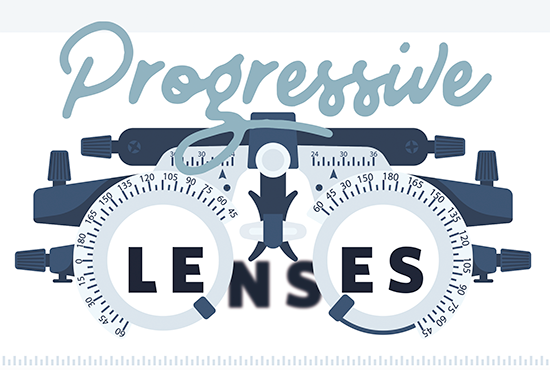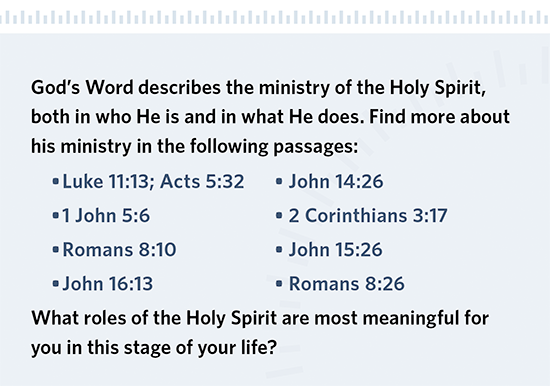
April-May 2022
Everyday Discipleship
------------------
|





Progressive Lenses
By Carol Reid
I scratched my glasses.
I’m not talking about a little scratch. I’m talking about rubbing against the can of spray-on sunscreen in my backpack while I walked for an hour on the beach. Picture a big gash, right in the middle of the (formerly) no-line bifocal.
At first, I tried to clean that annoying spot. I even took soap and water and tried to wash it away. No luck. When I realized it was indeed a scratch, and my glasses were not wearable unless I kept one eye closed, I was in a fix.
We immediately went to a dollar store and bought three pairs of reading glasses (one for computer, one for books, and one spare). Then I spent six weeks pulling them on and off, trying to adjust, trying to keep up with the ones I needed, trying to look from the person in my office back to the computer screen or page we were discussing.
After a visit to the eye doctor for a new prescription and a long wait for lenses, I was so thankful when my new glasses arrived, and I could see again. Yes, those Verilux progressive lens, no-line bifocals cost an arm and a leg, but they are worth it.
Vision is so important to us! If you don’t (yet) depend on a pair of bifocals like I do, you should thank the Lord for good eyes. We are blessed to live in the twenty-first century when modern healthcare enables us to read or drive or see a screen, even when our vision is less than perfect.
Some people have “far and near” contact lenses—where one eye adjusts for distance vision, and the other for close-up views. Friends say it takes some getting used to, but they can quickly see whatever they need to see. We expect to see automatically, without extra effort or concentration. We expect to see near and far—all at once.
That is God’s expectation for us too, to see the needs of others, near and far away, all at once.
Find Your Focus
God wants our focus to be first on Him. Even when we are overwhelmed and confused, we can be centered in God’s presence and assured of His help. It is crucial to put our full focus on Him. Then we must turn to the work He has given us to do. We should be attentive to His direction and His clear plan for sharing the gospel (Colossians 3:1-2).
Acts 1:8 records Christ’s last instructions to His disciples before ascending into Heaven. The first and essential step to His plan was the empowerment of the Holy Spirit. What a disaster we would have without tapping into this resource. The third person of the Trinity is the electricity in the wire, the turbo in the charger, the juice in the battery. Without His intervention, strength, and help, our efforts are for nothing.

Acts 4:31 tells us when the disciples were filled with the Holy Spirit, they spoke the good news of salvation boldly. In our lives, too, we must rely on the Spirit’s power to boldly share the gospel, both nearby and far away.
Start at Home!
That was the instruction of Jesus Christ when He commissioned the disciples in Acts 1:8. There in Jerusalem, their own homes, community, and city, they would begin to share the message. This strategy accomplishes several things.
First, every believer is involved. Location does not limit anyone. Also, this base of believers allows teamwork, idea generation, and funding to reach beyond our local area to share the gospel. The supply line of resources and volunteers enables a believer, a family, a church, a group of churches to reach further than they ever could alone.
We are witnesses of the gospel as part of our everyday lifestyle. It’s not just about going to church. Yes, we regularly gather to worship and learn. But sharing the good news with our local community isn’t about what happens at our church building.
When we go to the store or gas station, when we clock in on the job, attend the PTA meeting, or work out at the gym—that’s when we shine like lights in a dark world. How does that look?
-
It looks like courtesy and patience.
-
It looks like joy and peace.
-
It looks like endurance in hard times.
-
It looks like thoughtfulness and kindness.
-
It looks like unselfishness.
-
It looks like dependability.
Admit it. Those characteristics make you stand out from the crowd. You share the gospel by the relationships you build and your daily conduct in the workplace and marketplace of life. Your community should recognize you belong to Christ.
There’s a place, though, that should see your testimony of the gospel even before your community. (Watch your toes! This might hurt.) That’s your home. Often, it is easier to bear witness to Christ on the job or in public than with our own families. The people who know us best see us at our worst—our crabby, selfish, moody, inconsistent selves. And it ain’t always pretty.
In fact, our families may be turned off to the gospel when we act one way in public and another at home. They are painfully aware of the hypocrisy. In those instances, not only do we fail to share the good news, but we also build barriers to it by our actions at home.
As you follow Christ’s command to start at Jerusalem, draw your circle very small and begin by sharing the gospel in your own home (Deuteronomy 6:5-7). Use every opportunity to authentically demonstrate the difference knowing Jesus makes, even to your own family.
Head for Judea
Reach beyond your community, your “tribe.” We are often nearsighted, seeing the needs in our neighborhood or church but forgetting those beyond our comfort zone. Our Lazy Boy™ recliners are rubbing off on us. We must ask the Lord to help us see others as He sees them, to be sensitive to their needs, to reach out and rescue them in their distress (Matthew 25:31-46).
Acts records examples of disciples who stepped out of their comfort zones to minister to others. In Acts 8, Philip was commanded to leave a powerful revival in Jerusalem and travel to the desert in Gaza. There he met a man unlike himself—a different background, perhaps a different skin color, and other notable differences. What do we know about their interaction? We know God set up the meeting, prepared the Ethiopian’s seeking heart, and enabled Philip to introduce him to Jesus. It made all the difference for the Ethiopian, and undoubtedly for his community, as the gospel continued to spread.
In Acts 17, Paul had an unusual opportunity when he visited Athens. He stood up with philosophers and testified to “the unknown God,” the creator and judge of the world.
Could Philip and Paul have backed away from these “uncomfortable” opportunities to share the gospel outside their communities? What would the results have been? What opportunities does God have in store for you?
To the Ends of the Earth
Think of God’s plan as a target, or series of concentric circles. As the message continues to expand, ring by ring, the gospel travels further. The ultimate goal of God’s plan is for every people group to hear the good news of Jesus Christ and find forgiveness of sin.
There is no other plan.
Perhaps you’ve worked a crossword or jigsaw puzzle and gotten stumped in a section of the puzzle. Nothing seems to work, so you start another section of the puzzle and work backward to fill in the missing letters or pieces. The gospel has traveled the same way. When believers fail to take the message of redemption to the next “circle,” God starts another path, a new route. He is intentional about every tribe and every nation (Matthew 24:14). We need to share His heart and get busy doing our part.
Progressive Lenses
Remember, we are talking about progressive lenses here—not having to put on and pull off two or three pairs of glasses to see clearly. That means you wear them all at once to see up close and far away through the same pair of glasses.
Let’s apply that to God’s plan for the gospel in Acts 1:8. Don’t see these circles of outreach as sequential. See them as simultaneous, concurrent, both near and far, both close and distant. And the wonderful thing is they inform and extend one another. Our families are stronger when we help them see the needs of others around the world. Our churches are stronger when we unite to reach the community or support cross-cultural ministry. Our impact on the world is better when we model strong homes and healthy churches.
Each circle feeds the others as we follow God’s plan to share the gospel with all people. Ask Him today to give you a clear vision of your next step in His plan.
About the Author: Carol Reid is senior editor at Randall House Publications and a regular writer for WNAC.
|
|

